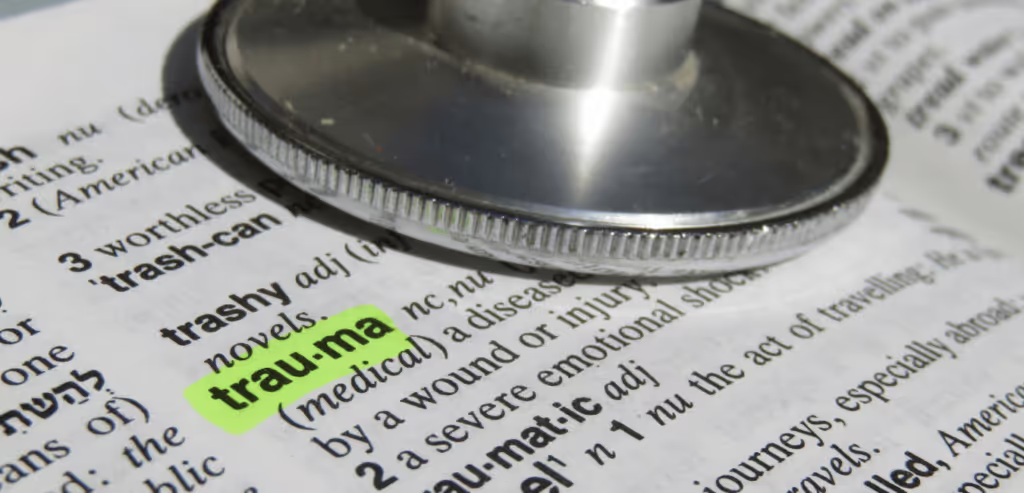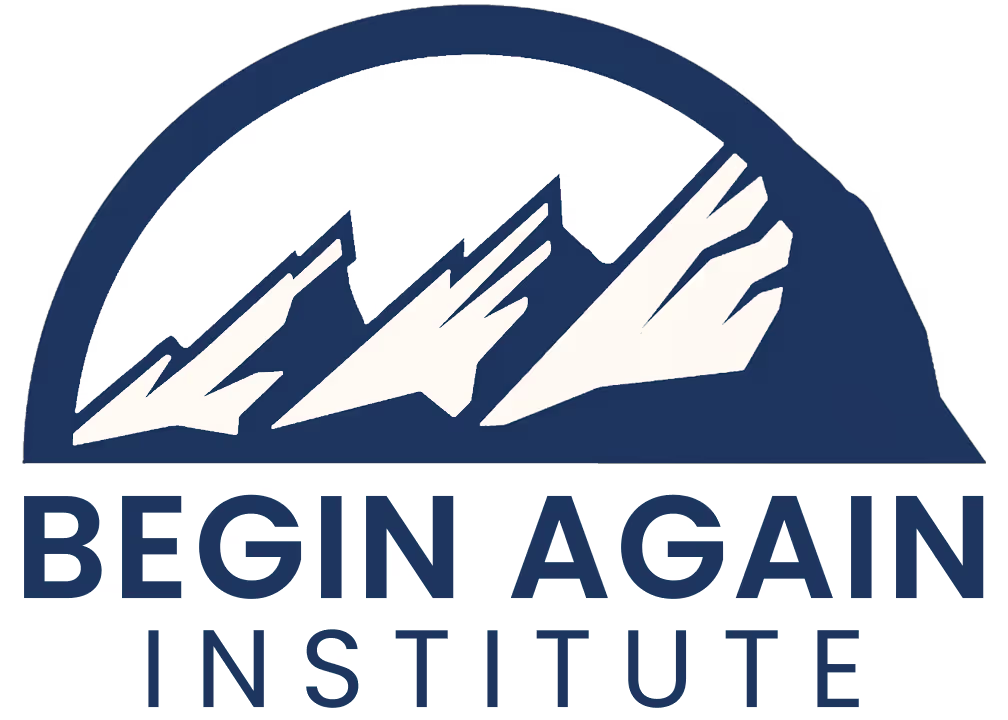Understanding the Link Between Sex Addiction and Trauma


The link between sex addiction and trauma may seem a bit unclear. But unresolved trauma is a key factor in addiction.
When you survive a traumatic experience, it leaves marks. It changes the way your brain operates and alters your stress response. To recover from sex addiction, you must recognize the trauma and process it. Only then will you be free from your compulsive sexual behaviors.
What is Trauma?
Trauma is anything that causes you to believe you are in severe danger and causes a fight-or-flight response. It can be a deeply distressing or disturbing experience or a series of stressful life happenings. Afterward, it takes time to cope and adjust.
Three types of trauma are:
- Physical Trauma. An event or series of events that cause you physical pain or injury. It may be intentional or be a result of circumstances. Physical trauma includes car accidents, natural disasters, illness, domestic abuse, or physical assault.
- Sexual Trauma. Forced sexual contact with someone you’re close to or a stranger. Sexual trauma can happen to anyone at any point in life. Examples of sexual trauma include rape, incest, and sexual assault.
- Emotional Trauma. Emotional trauma can happen in a single event or repeatedly. Emotional trauma is often a form of abuse used to control another person by manipulating them. Emotional trauma can be the rejection of your identity, a neglectful parent or partner, or bullying.
The type of trauma you survive is vital to name, and it plays a critical part in your healing process. The ability to say that you survived a specific type of trauma can help you regain power. After all, at the heart of trauma is a feeling of powerlessness.
The Impact of Trauma
Your brain and emotional processing system changes after surviving trauma. In a matter of seconds, your brain activates fight-or-flight mode to help you survive.
Flight-or-flight mode causes all of your “non-essential” systems to go offline. This shift happens, so your body can focus on fleeing or fighting the threat.
When your body and mind do this, you physically can’t process the surrounding events. Your brain is laser-focused on your escape.
The most troubling part of this involuntary mode is that you can’t leave it at will. You need something external to make you feel better and safe again.
Even once you feel safe and things go back to “normal,” your brain learns from the trauma. The experience becomes something of an alarm system for your brain. From the incident, your brain learns new types of threats. The fear of these new threats becomes a trigger. These triggers cause fear, anxiety, and anguish because they put your brain and body back into fight-or-flight mode.
Some symptoms of trauma are:
- Sudden mood changes including irritability, anger, anxiety, and nervousness
- Intense fear of the trauma reoccurring, especially on significant dates
- Denial that the trauma occurred
- Difficulty concentrating on work or daily tasks
- Nightmares
- Repeated memories of the events or “flashbacks”
- Physical symptoms such as headaches, nausea, or insomnia
- Ongoing mental health conditions such as depression or panic or anxiety attacks
There are many less obvious symptoms that you have survived trauma, whether you call it trauma or not. Your definition of traumatizing isn’t important. Your brain makes that decision for you.
The Impact of Trauma on the Brain
Trauma impacts three parts of your brain — the amygdala, the hippocampus, and the prefrontal cortex.
The amygdala is the emotional and instinctual center. When you survive trauma, triggers send this survival brain center into overdrive. You respond to that trigger as you would the source of the trauma.
The hippocampus controls your ability to form and maintain memories. Trauma causes reduced activity in this part of the brain. Reduced activity here means you lose the full capacity to distinguish between the past and present. So, when something reminds you of the trauma, you see the trigger or memory as the original threat.
Your prefrontal cortex regulates your impulses and emotions. Trauma causes it to become suppressed, meaning you are less able to or unable to control your reaction to things.
Trauma damages all three of these areas. This damage leads to you not fully controlling your reaction to triggers.
What is Sex Addiction?
Commonly called hypersexuality disorder, sex addiction is obsessive sexual thoughts, urges, and behaviors. These reactions cause you significant distress. They adversely impact your health, relationships, or career.
Sex addiction encompasses three types of compulsive sexual behaviors:
- Porn Addiction. The uncontrollable need to use or consume pornography, typically accompanied by masturbation. Often, if you’re addicted to porn, you can’t experience sexual release without pornographic input.
- Masturbation Addiction. The compulsive need to masturbate, especially in response to stress or adverse feelings.
- Sex Addiction. Compulsive sexual behaviors like intercourse with strangers, participating in illegal sexual activities, and an inability to control sexual thoughts.
All of these forms of sex addiction have overlapping symptoms. An addiction to porn or masturbation can often escalate and act out in other sexual ways.
Symptoms of sex addiction include:
- Obsessive thoughts about sex, pornography, and self-pleasure
- Avoiding activities where sex isn’t involved
- Hiding your sexual behaviors from your spouse, friends, and family
- Failed attempts to stop sexual behaviors
- Feeling depression or shame about sexual behaviors
Compulsive sexual behaviors start as healthy. Masturbation and sex are part of having healthy sexuality. When the behaviors become a way to cope, and you feel out of control, it changes into sex addiction. Using sexual release to self-medicate can become detrimental and dangerous for your well-being.

The Link Between Sex Addiction and Trauma
Trauma affects your brain’s ability to function in the same ways it used to. When you experience trauma, the only way to get out of fight-or-flight mode is to find a source of dopamine.
Dopamine is the pleasure-chemical that your brain releases when you have sex, eat fatty food, and hug someone you love. The most readily available source of dopamine any human has is self-pleasure.
Masturbation causes a massive surge in dopamine, and this surge calms your fight-or-flight response. You’re better able to cope with the traumatic experience and return to normal.
But, for those who become addicted to sex, you begin to use the sexual release to cope with daily stressors. Over time, your masturbation and sexual release become your conditioned response to adverse situations. A deeply-rooted neural pathway forms between stress, trauma, and sex. Sexual release becomes a way to self-medicate.
As Dr. Gabor Mate, the author of the best-selling book “Realm of Hungry Ghosts: Close Encounters with Addiction,” said:
“Addiction is not a choice that anybody makes; it’s not a moral failure. What it actually is: it’s a response to human suffering.”
Can You Overcome a Sex Addiction?
There is no overnight cure for sex addiction. Many of the 12-step programs out there help you manage the symptoms, but you’re still far from the root cause. At Begin Again Institute, our focus is treating sex addiction.
14-Day Men’s Intensive
Our intensive is a rare opportunity for you to disconnect from daily life and reset your behaviors. Set in the stunning mountains around Boulder, Colorado, you’ll have various treatment types to help you heal your trauma. This two-week intensive will give you the jump-start you need to control your compulsive sexual behaviors.
Partner Support Program
Running simultaneously with your 14-Day Men’s Intensive, we invite your partner to attend their own healing program. In these healing sessions, they’ll learn the root cause of your addiction and heal from their betrayal trauma. Combining the two programs means you have a higher chance of getting sober and staying that way.
Continuous Support Program
Your care starts in our 14-Day intensive, but triggering events and difficult memories won’t disappear once you leave. Joining our Continuing Care Program means you’ll have ongoing access to group and one-on-one therapy. With this continuity of care, you’ll have all the tools you need to enter lifelong remission.
Understanding the link between sex addiction and trauma is the first step on your healing journey. It all starts with acknowledging what happened to you and learning how to grow. You’ve already taken the first step. Commit to your healing today by contacting Begin Again Institute.
{{embed-6709}}
Test Intensive Date
We get right to work, so you can get back to life.
“Begin again helped me jumpstart my healing. It’s like
a years worth of therapy in one trip.”


